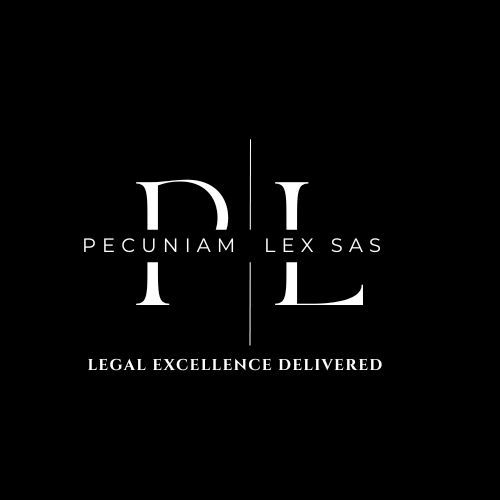Why You Should Never Do a Business Transaction Without Having Your Company Registered
Phillips J. Diaz-Vicioso, LL.M.
January 11, 2015
Embarkation of the Pilgrims (1857) by Robert Walter Weir

In today's fast-paced business world, the excitement of striking deals and launching ventures can sometimes overshadow the foundational steps necessary for long-term success. One such crucial step is ensuring that your business entity is properly registered before engaging in any transactions. This practice not only lends credibility to your business but also provides a legal framework that protects your interests and assets. In this article, we delve into the importance of registering your company and outline the different types of companies, with a focus on variations across Panama, Dominican Republic, Colombia, and El Salvador.
The Importance of Registering Your Company
Registering your company is paramount for several reasons:
- Legal Protection: It establishes a legal distinction between you and your business, protecting your personal assets from business liabilities.
- Credibility with Customers and Suppliers: A registered business is often seen as more trustworthy and stable.
- Access to Financing: Banks and investors typically require a formal business structure for funding.
- Compliance and Benefits: Registration ensures compliance with local tax laws and eligibility for potential tax advantages and government incentives.
- Separation of your patrimony: Once the business is registered, proprietors, shareholders, and partners are only exceptionally personally liable for debts and lawsuits generated by the venture.
The American equivalents of companies in Latin America
Empresa Individual de Responsabilidad Limitada (EIRL)
- American Equivalent: Sole Proprietorship with a Limited Liability Company (LLC) structure. In the U.S., a sole proprietor can form an LLC to obtain limited liability protection, separating personal assets from business liabilities.
Sociedad de Responsabilidad Limitada (SRL)
- American Equivalent: Limited Liability Company (LLC). The LLC is a popular choice in the U.S. for its flexibility in management and operations, tax benefits, and limited liability protection for its members. It requires a minimum of two (2) members.
Sociedad Anónima (SA)
- American Equivalent: Corporation (C-Corp). A corporation in the U.S. offers limited liability to its shareholders, can issue stock, and is suited for larger companies with the possibility of going public.
Sociedad por Acciones Simplificada (SAS)
- American Equivalent: There's not a direct one-to-one equivalent for SAS in American corporate structures. It shares similarities with both the LLC for its operational flexibility and ease of formation, and with the S Corporation (S-Corp) for its potential tax advantages and restrictions on shareholders. The S-Corp is a close comparison due to its simpler and more flexible structure than a traditional corporation, although it's worth noting that an S-Corp's tax benefits and shareholder limitations make it a unique entity.
These equivalents provide a framework for understanding how business structures in Latin American countries can translate into the U.S. legal system. They offer various options for entrepreneurs and foreign investors looking to establish or expand their business operations outside the United States.
Types of Companies
The legal structure you choose for your company can significantly impact your business operations, tax obligations, and liability exposure. While company types are broadly similar across many jurisdictions, specific definitions and implications can vary. Below are the types of companies in Panama, Dominican Republic, Colombia, and El Salvador, highlighting key differences.
Empresa Individual de Responsabilidad Limitada (EIRL)
- Panama: Not applicable, as Panama does not specifically recognize the EIRL structure.
- Dominican Republic: An EIRL is an individual enterprise with limited liability, separating the owner's personal assets from business liabilities.
- Colombia: Similar to the Dominican Republic, it allows entrepreneurs to operate as sole traders while enjoying limited liability.
- El Salvador: Recognizes the EIRL, offering personal asset protection for sole proprietors.
Sociedad de Responsabilidad Limitada (SRL)
- Panama: Known as an LLC in many countries, the SRL in Panama offers limited liability to its owners with a flexible management structure.
- Dominican Republic: Similar to Panama, providing a framework for small to medium-sized businesses with limited liability.
- Colombia: Offers a structure for businesses with a few partners, focusing on limited liability and flexibility.
- El Salvador: The SRL structure is used for businesses that prefer limited liability while keeping the management simple and flexible.
Sociedad Anónima (SA)
- Panama: A corporation with shareholders, suitable for larger businesses. It offers significant flexibility in terms of capital structure and shareholder rights.
- Dominican Republic: Similar to Panama, the SA is designed for larger enterprises with a focus on shareholder investment.
- Colombia: The SA is ideal for large companies, allowing for public trading of shares on the stock market.
- El Salvador: Also geared towards larger businesses, providing a structure for raising capital through public or private share offerings.
Sociedad por Acciones Simplificada (SAS)
- Panama: A flexible business structure allowing one or more shareholders, combining the benefits of an SRL and an SA.
- Dominican Republic: Not specifically recognized under this name, but similar flexibility can be found in SRL or SA structures.
- Colombia: Highly flexible and modern, allowing for a single shareholder and simplified governance.
- El Salvador: Introduced to encourage entrepreneurship, offering simplicity in formation and operation, suitable for small to medium businesses
Our Services for Local and Foreign Investors
Understanding the nuances of company registration and the optimal structure for your business can be daunting, especially for foreign investors. Our firm specializes in providing comprehensive services to establish your company in Panama, Dominican Republic, Colombia, and El Salvador. We navigate the legal landscape on your behalf, ensuring that your business is set up for success from day one. From choosing the right type of company to handling all registration processes, our team is here to make your entry into these markets as seamless and efficient as possible.
In conclusion, the importance of registering your company cannot be overstated. It's not just a legal requirement; it's a fundamental step towards establishing a credible, protected, and financially sound business. Whether you're a local entrepreneur or a foreign investor, our services are designed to cater to your specific needs, offering peace of mind and a clear path to your business goals.
By Phillips J. Díaz-Vicioso, LL.M.












